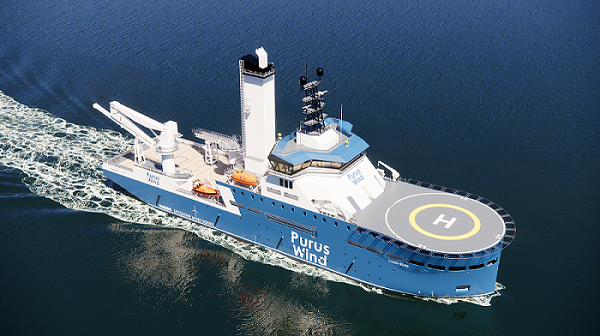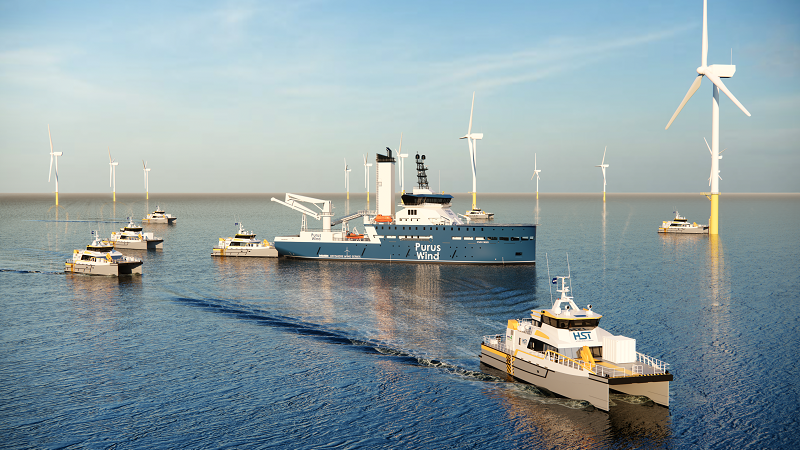Purus Wind Orders Eight Offshore Wind Vessels from Damen
Purus Wind, an offshore wind vessel services firm, has ordered eight offshore wind vessels from the Dutch shipbuilder Damen.
Under the order, Damen Shipyards will build and deliver four Damen Fast Crew Supplier (FCS) 2710 Hybrid and three Damen FCS 3210 Hybrid Crew Transfer Vessels (CTVs) and one 90-meter Construction Service Operation Vessel (CSOV).
While the FCS 3210s and the CSOV will be equipped for ultra-low emission operations, they have also been designed to be upgraded to methanol-fuelled engines when the time comes.
The new Hybrid FCS 2710s will join the three other Hybrids that Purus Wind’s High-Speed Transfers ordered from Damen in the second half of 2022.
The larger FCS 3210s are a new design that uses the same twin axe hull form as the Hybrid FCS 2710s.
As with the new FCS 2710s, a hybrid battery package for zero-emissions sailing is integrated into the design. The greater length allows for additional space for crew and passengers, making it more comfortable during operations, Damen said. Space is also reserved for possible conversion to methanol fuel.
An exhaust gas aftertreatment system is included to ensure that the vessels are IMO Tier III compliant.
The FCS 3210s are designed for longer distances serving wind farms further from shore and offer the possibility of staying longer at sea.
Construction Service Operation Vessel
Damen says that the 90-meter Damen CSOV Series will be highly versatile and capable of carrying up to 120 persons in comfort for up to thirty days at a time.
In addition to the diesel / electric propulsion system and battery array, innovative features include a hull design that is almost symmetrical fore and aft below the waterline, on which will be mounted Damen’s DPX-Drive. This has four identical thruster units – two forward and two aft - for highly precise maneuvering and station keeping, Damen said.
"Other features include excellent stability due to its design, which is further enhanced by a large anti-roll tank. A motion-compensated gangway and crane will also ensure smooth transfers of personnel and equipment. Like the CTVs, it has space reserved for additional battery capacity as and when it is required and will also be pre-prepared for both conversion to methanol engines and offshore charging," the shipbuilder said of the CSOV.
The new vessels are scheduled to be delivered between 2024 and early 2027. Financial details were not disclosed.


